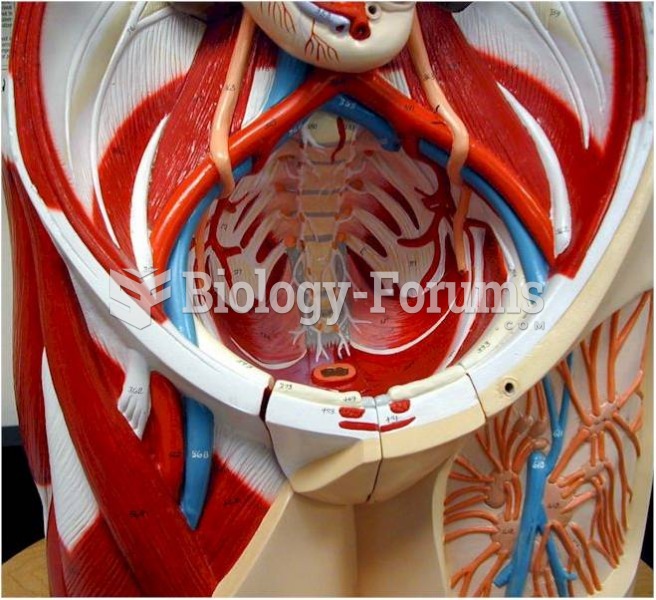|
|
|
Cucumber slices relieve headaches by tightening blood vessels, reducing blood flow to the area, and relieving pressure.
Intradermal injections are somewhat difficult to correctly administer because the skin layers are so thin that it is easy to accidentally punch through to the deeper subcutaneous layer.
The first-known contraceptive was crocodile dung, used in Egypt in 2000 BC. Condoms were also reportedly used, made of animal bladders or intestines.
The first war in which wide-scale use of anesthetics occurred was the Civil War, and 80% of all wounds were in the extremities.
Drug-induced pharmacodynamic effects manifested in older adults include drug-induced renal toxicity, which can be a major factor when these adults are experiencing other kidney problems.
 The urinary system: kidneys, ureters, bladder, and urethra with expanded view of a nephron and the u
The urinary system: kidneys, ureters, bladder, and urethra with expanded view of a nephron and the u
 Ileal conduit; A, ureters implanted into ileal segment; B, closure of proximal end of ileal conduit.
Ileal conduit; A, ureters implanted into ileal segment; B, closure of proximal end of ileal conduit.





